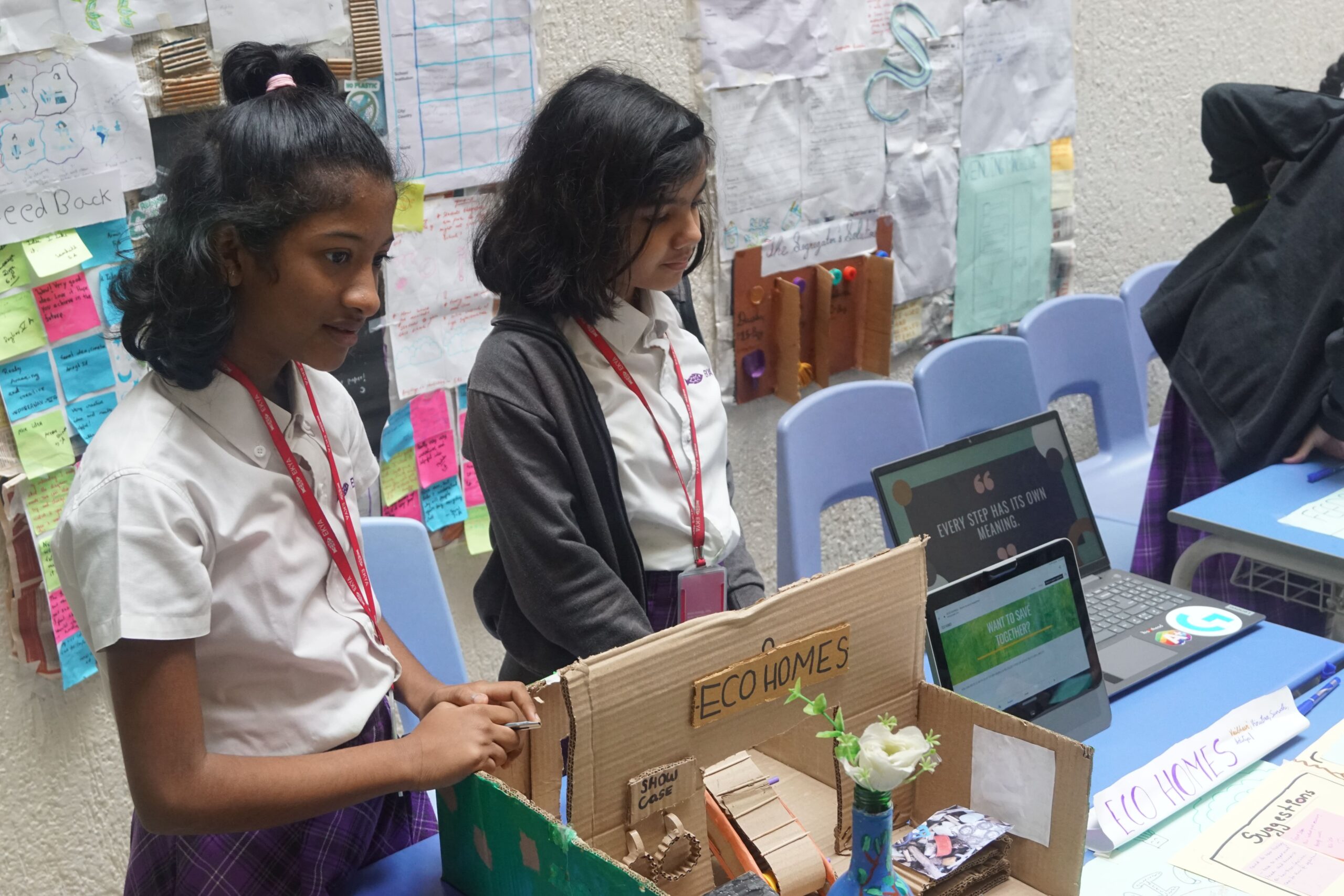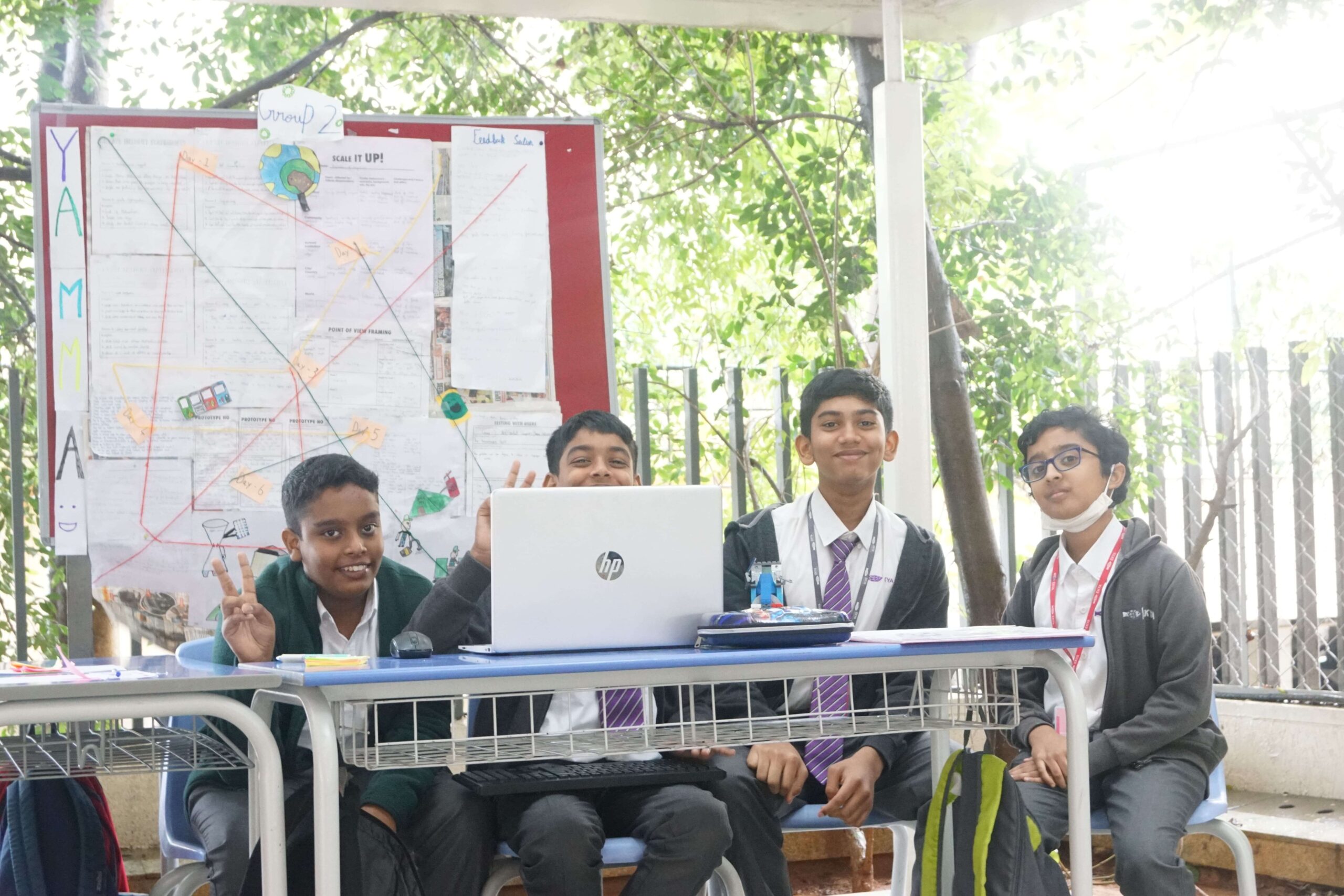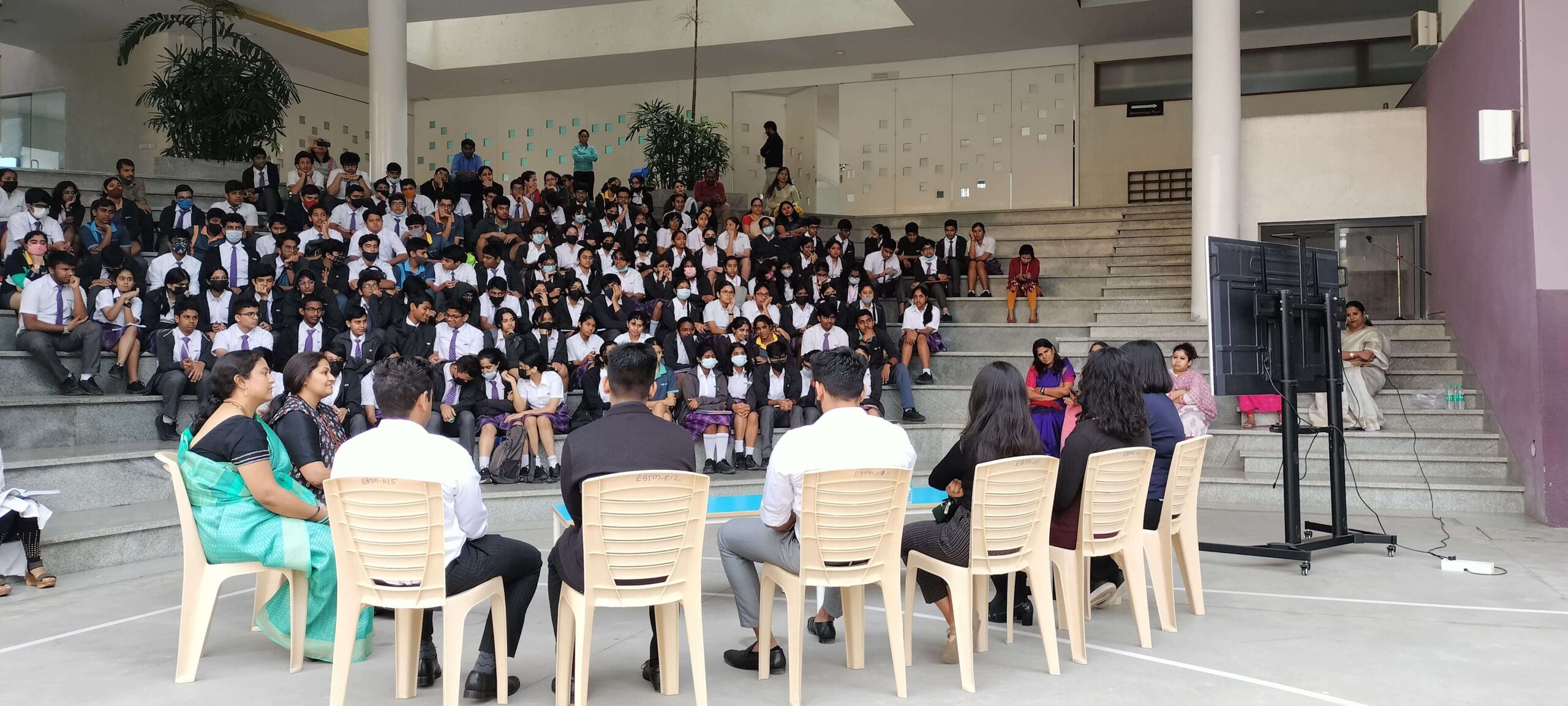EKYA/24 January 2025 Posted by : EKYA Schools
Preparing the Next Generation: Fostering Global Citizenship in an Interconnected Society
The foundation of good citizenship begins at home, but in today’s interconnected world, it extends far beyond physical borders. Our children are growing up in a global society where their first interactions often happen online—exploring new cultures, sharing ideas, and engaging with diverse communities. But just like in the real world, being a responsible global citizen in the digital age comes with its own set of challenges, responsibilities, and opportunities.
Have you ever wondered how your child interacts with the world around them—both online and offline? Are they empathetic? Are they mindful of their actions? Do they understand the impact they have on the global community with every post, comment, or interaction?
At Ekya Schools, one of the top schools in Bangalore, we believe that preparing students for the future means more than just academic excellence. It’s about equipping them with the skills, values, and mindset to thrive in a connected, global society. This is where fostering global citizenship comes in—a critical aspect of education that empowers students to engage with the world responsibly, ethically, and thoughtfully.

What Is Global Citizenship?
Global citizenship is about more than just understanding geography or learning about different cultures. It’s about developing the skills and values needed to actively participate in and contribute to a global society. A responsible global citizen is someone who:
- Communicates respectfully and empathetically with people from diverse backgrounds.
- Understands the importance of sustainability and takes action to protect the environment.
- Thinks critically about global issues, such as inequality, climate change, and misinformation.
- Uses technology and resources to make a positive impact on the world.
In essence, global citizenship teaches students to be thoughtful, ethical, and compassionate participants in an interconnected society.

Why Is Global Citizenship Important for Students?
In today’s world, students are exposed to a wealth of information and perspectives from across the globe. While this connectivity offers incredible opportunities, it also requires critical thinking, empathy, and responsibility. Here’s why fostering global citizenship is essential for students:
1. Encourages Empathy and Respect
Global citizenship helps students understand and appreciate diverse cultures, perspectives, and experiences. It fosters empathy and respect, teaching them to value differences and build meaningful connections with others.
2. Promotes Ethical Responsibility
Being a global citizen means understanding the impact of one’s actions on the world. From reducing waste to supporting fair trade, students learn to make ethical choices that contribute to a better future.
3. Develops Critical Thinking Skills
In a world filled with complex global challenges, students need the ability to think critically and evaluate information. Global citizenship equips them to analyze issues like climate change, inequality, and misinformation with a thoughtful and informed approach.
4. Prepares Students for a Globalized Future
As workplaces, colleges, and communities become increasingly global, students who embrace global citizenship are better prepared to succeed. They develop the adaptability, collaboration, and problem-solving skills needed to thrive in a connected world.

How Schools in Bangalore Can Foster Global Citizenship
As one of the top schools in Bangalore, Ekya Schools is committed to preparing students for the challenges and opportunities of an interconnected society. Schools play a vital role in fostering global citizenship by integrating it into the curriculum and creating opportunities for students to engage with the world meaningfully.
Here’s how schools can nurture global citizens:
1. Interactive Global Education Programs
Global education should go beyond textbooks and focus on experiential learning. Programs that encourage students to explore global issues, participate in cultural exchanges, and collaborate on international projects help them develop a deeper understanding of the world.
At Ekya Schools, we incorporate hands-on activities like model UN simulations, cultural festivals, and global awareness projects to make these lessons engaging and impactful.
2. Sustainability and Environmental Awareness
Global citizenship includes understanding the importance of sustainability and taking action to protect the planet. Schools can teach students about environmental issues and involve them in initiatives like tree planting, waste management, and energy conservation.
At Ekya Schools, we empower students to become environmental stewards by integrating sustainability into our curriculum and encouraging eco-friendly practices.
3. Encouraging Positive Digital Engagement
In today’s digital age, global citizenship extends to online spaces. Schools can teach students how to use technology responsibly, communicate respectfully, and contribute positively to online communities.
For example, students at Ekya Schools participate in collaborative digital projects that teach them how to share ideas constructively and engage with diverse perspectives.
4. Teaching Media Literacy and Critical Thinking
With the rise of misinformation, media literacy is a crucial skill for global citizens. Schools can help students evaluate the credibility of sources, identify biases, and think critically about the information they consume.
At Ekya Schools, media literacy is a core part of our approach to fostering global citizenship, ensuring students are informed and thoughtful participants in the global conversation.
5. Collaboration Between Educators and Parents
Fostering global citizenship is a shared responsibility. Schools can work closely with parents to ensure students practice empathy, responsibility, and ethical behavior both at home and in the classroom.
At Ekya Schools, we host workshops and events that bring educators and parents together to create a unified approach to raising globally aware and responsible students.
Shaping the Future of Global Citizens
In an interconnected world, the importance of global citizenship cannot be overstated. Teaching children to engage with the world responsibly, ethically, and thoughtfully is not just a skill—it’s a necessity. By fostering empathy, critical thinking, and ethical behavior, we prepare students to thrive in a global society.
At Ekya Schools, one of the top schools in Bangalore, we are proud to lead the way in shaping the next generation of global citizens. Together, let’s empower our children to make a positive impact on the world—both online and offline.